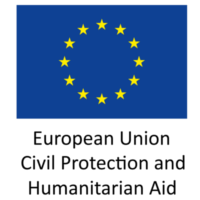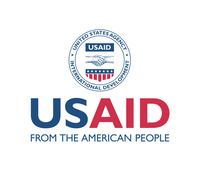Since 2012, Niger has been grappling with a serious security crisis involving neighboring Nigeria, Mali, and Burkina Faso, triggering large-scale population movements towards the Tillaberi and Tahoua regions bordering Mali and Burkina Faso, as well as in the Diffa region bordering Nigeria. The situation in Niger has further worsened following the coup of July 26, 2023; the presence of non-state armed groups in the cross-border region with Mali and Burkina Faso exacerbates population displacement.
The deterioration of the security situation in the country resulted in significant health, food and security challenges, increasing the need for primary health care and interventions to combat malnutrition. With a view to ensuring prevention, preparedness and response to public health emergencies and population movements, COOPI has activated the Rapid Response Mechanism, a central element of the two projects currently active in the country funded by the USAID's Bureau for Humanitarian Assistance (BHA) and the project funded by European Humanitarian Aid (ECHO).
It is in this context that ECHO has been funding since April 2022 in the Tillaberi and Tahoua regions the project “Emergency response (RRM) to the health care, nutrition and psychosocial support needs of the most vulnerable, displaced and host populations in conflict-affected areas of Niger”, which, for 2 years, provides health care to displaced and host populations through coordination with state health actors and local partners. This is done through harmonized care management by members of the “Rapid Response for Health Mechanism Group”, of which COOPI is a member along with other NGOs-Alima, Action contre la Fame, Premiere Urgence Internationale (PUI), and Help. This has enabled the installation of mobile clinics in the Tillabéry department at 6 sites for internally displaced persons, as part of the national mobile clinic program developed under the guidance of Niger's Ministry of Health. Thanks to the Crisis Modifier, which allows rapid adaptation to the volatile context, the project has a high degree of flexibility.
In addition, through the project “RRM And Community-Based Durable Solutions to Primary and Mental Health, Protection and Nutrition Needs of Crisis-Affected Populations in the Tillabéry and Tahoua Regions of Niger” funded by USAID and started in September 2023, with a duration of 2 years, COOPI and its partners ALIMA and Première Urgence Internationale have been able to reach people affected by this multidimensional crisis and internally displaced persons by providing them with sustainable access to high-quality health and medical care, sanitation, protection, and nutrition services. In pursuit of this goal, the consortium has established 9 Mobile Clinics, 3 of which are managed by COOPI, offering counseling, primary care, reproductive health services, screening, awareness sessions, and mental health and psychosocial support to all beneficiaries, including internally displaced persons, refugees, indigenous populations, people with special needs, and survivors of gender-based violence. In case of population movements exceeding 50 households, the consortium activates the Rapid Response Mechanism to determine health, food, shelter and hygiene needs. This intervention is implemented on the border with Mali and Burkina Faso.
Activities to address the health, protection, and nutrition needs of vulnerable populations affected by multidimensional crises are also being carried out in the Diffa region of eastern Niger as part of another project, also funded by USAID: “RRM and Post RRM Health, Protection and Nutrition integrated response to Conflict-Affected Populations in the Diffa, Tahoua and Tillaberi regions”, which began in October 2022 and is scheduled to end in September 2024. As part of the project, community agents recruited by COOPI set up 3 mobile clinics in the Diffa region, in three provinces with sites for those internally displaced, offering primary health care, mental health, psychosocial support, reproductive and sexual health, and nutrition services, and other temporary clinics in the Tillaberi and Tahoua regions, where training sessions were conducted to strengthen the capacities of COOPI health workers. Educational interventions were also carried out in 4 sites in the Diffa region, leading to the school reintegration of 214 children, and literacy classes for 150 adolescents began on March 11, 2024. Social-recreational and psychosocial support activities by COOPI psychologists and psychosocial agents have reached 14,562 people in the past 6 months.

